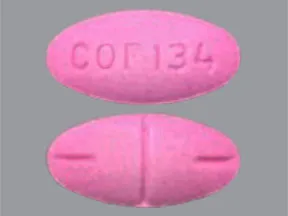

Investigations by Bloomberg and the Wall Street Journal earlier this year have alleged that certain telehealth companies are too quick to diagnose paying patients with ADHD, after boasting of easy access to medication in TikTok ads. Some of those digital health platforms are having trouble now. Some of those startups saw an opportunity here: Cerebral, for example, added ADHD treatment to its offerings in early 2021 and reportedly increased its sales tenfold, signed up tens of thousands of new patients, got hundreds of millions of dollars in funding, spent big on social media advertising, and reached a valuation of $4.8 billion.īetween the beginning of 2020 and the end of 2021, prescriptions for Adderall and its generic equivalents increased by nearly 25 percent during the pandemic for the 22-44 age group, a trend that health care analytics firm Trilliant Health attributed to “the emergence of digital mental health platforms.” At the same time, those medications have experienced shortages. This allowed totally remote telehealth or virtual care apps, which Silicon Valley has thrown money at over the last few years, to prescribe controlled substances, all through their mobile app. During the pandemic, the government waived a rule requiring that patients see an in-person provider before a controlled substance can be prescribed. These new kinds of services wouldn’t have been possible just a few years ago. And ADHD meds aren’t effective when taken by people who don’t have ADHD, but they can be addictive and abused. Diagnosing someone with a condition they don’t have - and prescribing meds to treat it - means they aren’t getting diagnosed and treated for whatever condition or conditions they do have. Meanwhile, it’s especially important that ADHD assessments are careful and thorough so that health care professionals can rule out other conditions with the same or similar symptoms as ADHD, look for coexisting conditions, and screen for people who are seeking ADHD meds like Adderall to abuse. Much of the TikTok content can be considered inaccurate or misleading. Due to a combination of the pandemic and the rise of telehealth startups, it’s never been easier to come across social media content that will convince you that you might have ADHD, or services that will prescribe meds for it if they determine that you do.īut that content isn’t always coming from health care professionals. Nick is one of many people who have started the journey to an ADHD diagnosis on TikTok in recent years. “God bless TikTok for starting me on this journey.” But it worked for me,” he said in a Reddit post at the time. He walked out of his local pharmacy with a bottle of Adderall a few days later. Nick’s evaluation with one of Done’s nurse practitioners lasted about 15 minutes, he said.

Done said its providers could diagnose patients with ADHD and write prescriptions for “treatment” - typically stimulants - in a matter of days, at a time when in-person health was especially hard to find. TikTok soon served up a way to get both: ads for a telehealth company called Done. He just needed a diagnosis and prescription. He’d never been diagnosed with ADHD, but Nick was soon pretty sure he had it and that stimulants would help. “Then more ADHD content started appearing.” “All of his content hit very close, and I binge-watched almost all of it,” Nick told Recode. Nick recognized some of the symptoms described by DeWolfe as things he also struggled with. Almost all of DeWolfe’s videos were about attention-deficit/hyperactivity disorder, or ADHD. They showed up on his For You feed, which is effectively TikTok’s homepage. Nick C., a 25-year-old food service worker who lives in western Iowa, remembers coming across TikTok influencer Connor DeWolfe’s videos about a year ago.


 0 kommentar(er)
0 kommentar(er)
